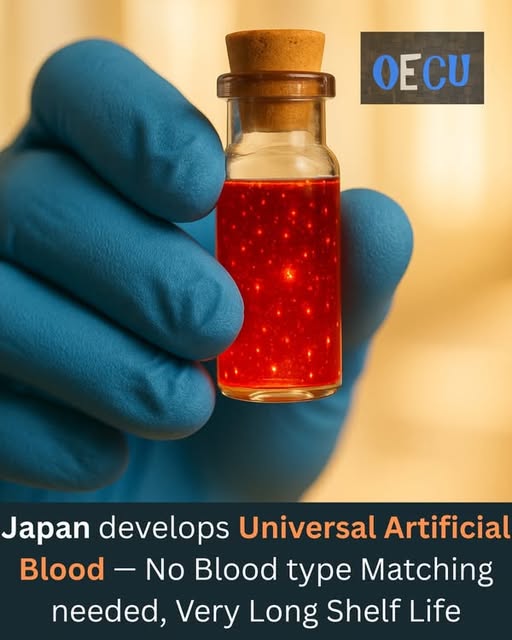In a groundbreaking advancement for emergency medicine and global healthcare, scientists are developing universal artificial blood that could revolutionize how we respond to trauma, surgery, and blood shortages. Unlike donated human blood, which must be carefully matched to a patient’s blood type, artificial blood is being designed to be universally compatible, eliminating the risk of mismatched transfusions and allowing for immediate use in critical situations.
This innovation holds immense promise, especially in conflict zones, disaster areas, and remote locations where access to blood banks is limited. Artificial blood products are also more stable than natural blood, capable of withstanding longer storage times and higher temperatures. This makes transportation and storage significantly easier, extending the reach of lifesaving treatments to places where conventional blood transfusions are impractical.
Researchers are currently testing several synthetic and semi-synthetic solutions, including hemoglobin-based oxygen carriers and perfluorocarbon emulsions. These artificial blood substitutes are designed to mimic the oxygen-carrying function of red blood cells without the need for matching blood types. If proven safe and effective, they could reduce dependency on blood donors and help prevent transfusion-transmitted infections, a major concern in many developing countries.
Disclaimer:
While the concept of universal artificial blood is promising, it is still under research and has not yet received widespread regulatory approval for routine clinical use. Current formulations are undergoing clinical trials to evaluate their safety, efficacy, and long-term impacts. This article is intended for informational purposes only and should not be interpreted as medical advice. Always consult qualified healthcare professionals for diagnosis and treatment of any medical condition.
